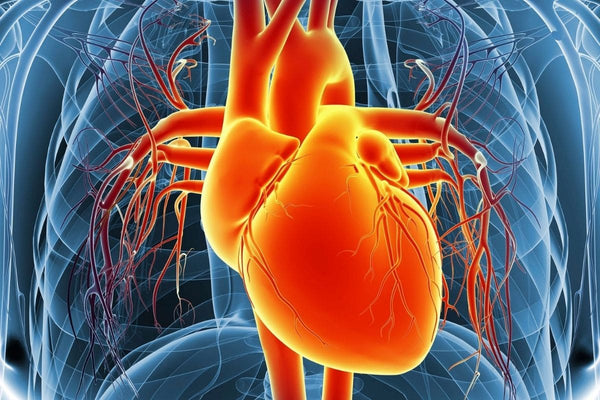When asked why they smoke, smokers give a variety of answers, many of which reference a stress-relieving effect when they have a cigarette. People come to rely on their smoke breaks at work, or steal opportunities while travelling to ‘stay on an even keel’.
The reality is, of course, that the body is craving a particular chemical, and this chemical will come in and activate parts of the brain to get things functioning ‘normally’ again, giving the effect of relief. The name of this chemical is nicotine.
HOW DOES SMOKING WORSEN STRESS?
NICOTINE ADDICTION
When you smoke, nicotine is absorbed by the lungs and makes its way into the bloodstream. Before moving on, it’s worth knowing that other chemicals in cigarettes increase how much nicotine is taken up by the body - this results in a huge nicotine hit from smoking cigarettes.
Having had a cigarette, the nicotine in the blood makes its way to the brain, to activate receptors known as ‘nicotinic acetylcholine receptors’. These receptors help to mediate electrochemical signals in the nervous system, which basically means it helps the nervous system cells communicate with each other.
Smoking over a prolonged period of time results in more of these nicotinic receptors forming in the brain, which means more nicotinic receptors need to be activated in order for the nervous system to communicate efficiently. (1)
When the nicotine supply stops, these receptors don’t allow efficient communication, which results in what many call ‘brain fog’ and could be described as a slowing of cognition and processing. This is a symptom of nicotine withdrawal.
What improves this state of mind? Well, another cigarette, of course.
SMOKING AND WITHDRAWAL SYMPTOMS
The withdrawal symptoms from smoking tend to reach farther than just thinking a little slowly. Your brain knows the course of action that results in ‘feeling better’ and so it drives you toward that end - another cigarette. This is a craving.
Craving a cigarette can end up affecting your behaviour, causing you to stress and be irritable which could have negative implications for your family and social life. Quitting smoking can lead to restlessness and insomnia - this can negatively affect sleep, which is not good for your overall health.
INCREASED HEART RATE AND BLOOD PRESSURE
The act of smoking can lead to many health problems, and tied in with stress is heart and vascular health. Needless to say, smoking is good for neither.
There are many harmful chemicals in tobacco smoke, and they cause damage to the cells lining the walls of blood vessels, resulting in inflammation. (2)
Smoking also increases insulin resistance, which results in a higher blood glucose content (3). A higher blood glucose content can lead to the formation of plaque on the walls of blood vessels, this leads to the stiffening of the blood vessels, and increased blood pressure.
As nicotine is a stimulant, it increases the heart rate as well. These factors all come together to result in an increased risk of heart attack and stroke.
HEIGHTENS ANXIETY
The communication systems in the brain use chemicals to communicate - these are known as neurotransmitters. Coming back to the receptors that nicotine acts on - nicotinic acetylcholine receptors - they help the nervous system communicate.
The nervous system is in charge of movements, thoughts, automatic responses, digestion and breathing (among other things). Interruptions to the normal function of these receptors can alter the interactions between the systems of the body.
Anxiety disorders are often treated with drugs that interact with these bodily systems - these systems include:
the dopaminergic system (reward) the serotonergic system (mood, cognition, aggression, sleep)the noradrenergic system (alertness)the cannabinoid system (immune response, cell communication, appetite)
Chemicals found in cigarette smoke impact all of these systems (4), and this may explain, to some degree, why smoking increases anxiety - and why stopping smoking can relieve stress and symptoms of anxiety.
HOW DO MENTAL HEALTH AND STRESS LEVELS CHANGE ONCE YOU QUIT?
According to the UK’s NHS, stopping smoking is as beneficial as taking antidepressants for someone suffering from anxiety and depression. (5)
As mentioned earlier, nicotine acts on a variety of systems in the body, one of which is the dopaminergic system. Dopamine is involved in the rewarding feelings we feel, and is often found at lower levels in people with depression. As with many pathways in our body, if it is triggered by an external factor consistently over a period of time - like the intake of nicotine - then the body can switch off the way it normally releases dopamine.
Anabolic steroids are a great example of this, as they increase the level of testosterone in the blood to the point where the body says ‘there’s plenty of that in the blood, I don’t need to produce more’, so natural testosterone production halts, resulting in very low levels of testosterone when steroids are no longer being taken.
By smoking, nicotine becomes the chemical your body relies on to release dopamine, so when you want to feel good, you smoke. The natural ways that dopamine is released are forgotten, or at least reduced - like achieving something, exercising, or engaging in another activity you enjoy.
Quitting smoking will, in time, allow those pathways to begin to function normally again. There is definitely an adjustment period where levels of stress and anxiety will increase, and this is when your body is expecting nicotine to release a hit of dopamine. When this period has passed, you should find completing daily activities and tasks bring you a sense of joy and fulfilment - this is down to the natural release of dopamine!
WHAT ARE SOME TIPS ON HOW TO QUIT SMOKING?
The aim of quitting smoking is to avoid tobacco for long enough to normalise the brain chemistry; so we need a way of tackling stress without smoking. This means finding ways of dealing with cravings for cigarettes, and feelings of depression and stress that often come hand in hand with a quit smoking attempt.
E-cigarettes are an option for switching to a less harmful alternative to tobacco. You can use a 0% nicotine liquid to stay away from nicotine, and while this may help satiate due to the action of vaping, this won’t prevent cravings for nicotine.
Using a vape device with an e-liquid that contains nicotine is still a step in the right direction - there are chemicals in tobacco smoke that increase the bioavailability (how much is absorbed) of nicotine from cigarettes. E-cigarettes do not have these accompanying chemicals, so not as much nicotine is absorbed from e-cigarette aerosol.
This will naturally reduce the levels of nicotine entering the body, taking you one step toward quitting completely. Once using an e-cigarette, you can buy lower nicotine strength liquids to slowly reduce nicotine intake to zero, giving you a less stressful route to weaning off nicotine completely.
Taking the time to engage in activities that improve your mental health is another good way to ward off stress from nicotine withdrawal. Try:
There is evidence that all of those activities can help with stress and reduce cravings (6), so make sure to include as many of them in your daily schedule as you can manage.
REASONS WHY SMOKING WORSENS STRESS - CONCLUSION
The trap that smokers fall into is the temporary boost that smoking a cigarette provides, and continuing to smoke results in requiring a cigarette to get to a state they consider ‘normal’. This leads to a situation where a smoker is only fully content when they are smoking, and for a short while afterwards.
A smoker feels stress when not smoking, but the knowledge that smoking seriously impacts health is also a cause for stress, as is the social and familial impact. There is only one solution: break the cycle and quit smoking!
If you have tried quitting before without success, or the idea of suffering through withdrawal symptoms is too much for you, you should seriously consider trying an e-cigarette as the first stepping stone on the journey to quitting - for a simple, easy to use device, check out SMOKO’s E-cigarette starter kit deals page and make the switch today!
REFERENCES
(1) Nicotine-induced upregulation of nicotinic receptors: Underlying mechanisms and relevance to nicotine addiction
(2) SMOKING AND CARDIOVASCULAR DISEASE
(3) How Does Nicotine Affect Blood Sugar?
(4) How cigarette smoking may increase the risk of anxiety symptoms and anxiety disorders: a critical review of biological pathways
(5) Stopping smoking for your mental health
(6) 6 Things You Can Do Right Now to Fight Addiction Cravings
ABOUT THE AUTHOR
Written by Dan Overgage
Dan Overgage – is a former smoker of 10 years until he became a client of SMOKO E-Cigarettes. Dan started working with SMOKO 5 years ago after successfully quitting using our e-cigarettes and works across our Customer Service and heads up our content creation and research with a strong focus on all things quitting smoking. During his tenure with SMOKO, Dan has written countless blogs and consults with countless clients every day to help them to stay smoke-free.












